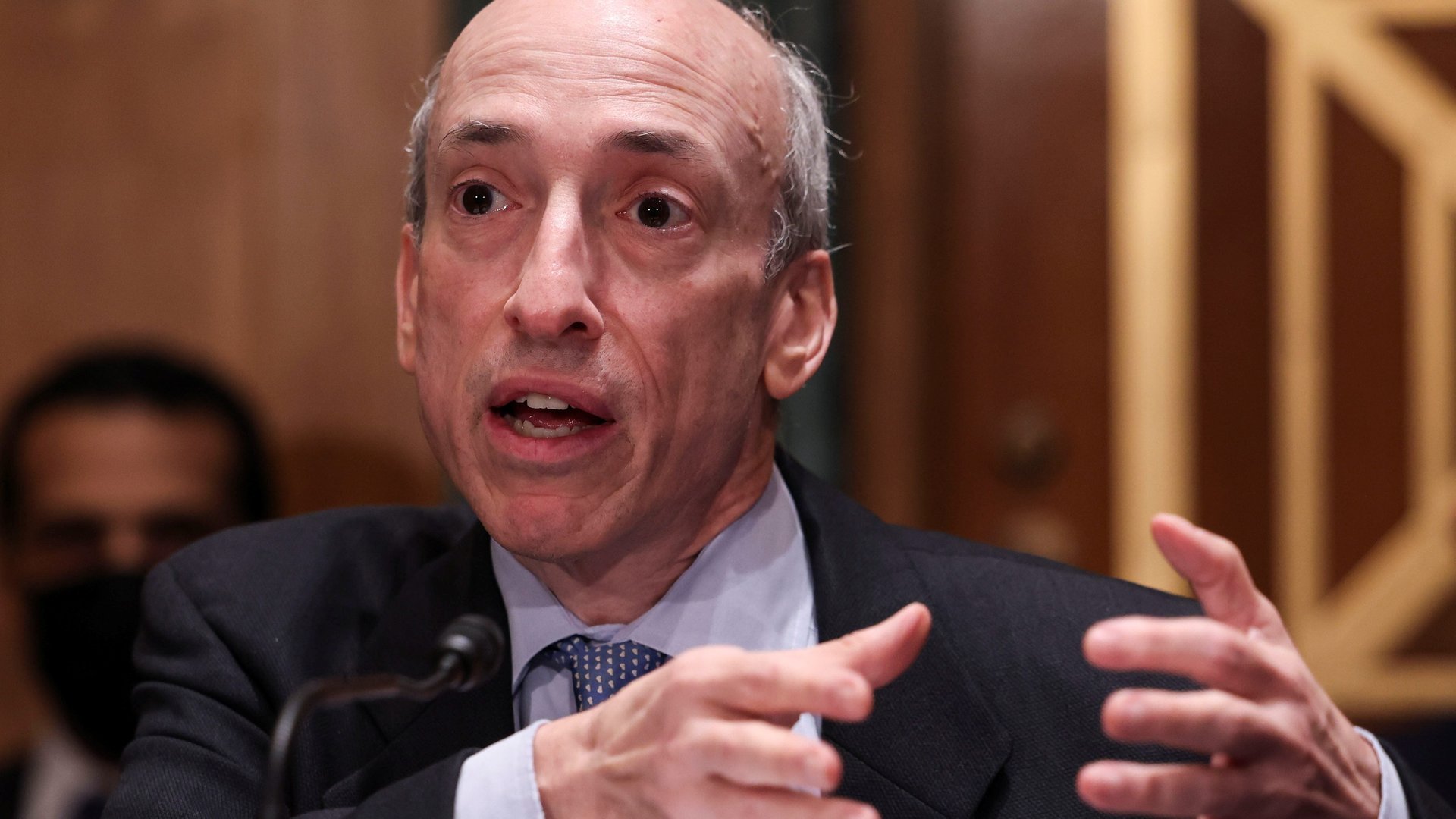Does the SEC’s green light for a bitcoin ETF mark the peak?
The first US exchange-traded fund for bitcoin is poised to start trading this week. Is it a watershed moment for crypto?


The first US exchange-traded fund for bitcoin is poised to start trading this week. Is it a watershed moment for crypto?
If recent history is any guide, it could mark a peak: Two other “watershed” moments for digital assets were followed by losses. That word got tossed around when crypto exchange Coinbase went public in April and when bitcoin futures debuted on trading exchange Cboe Global Markets in December 2017 (and on CME Group, the world’s largest financial-derivatives exchange, slightly thereafter). Those events were seen as something that could legitimize crypto among regular people and institutional investors, and both turned out to be high-water marks for bitcoin.
Why is bitcoin going up today?
Bitcoin prices are climbing as a bitcoin ETF run by ProShares under the ticker “BITO” is set to start trading as early as Tuesday (Oct. 19). The virtual token has risen to about $61,829.00, the highest price on a closing basis since April, according to Coinbase and St. Louis Federal Reserve data. Several other bitcoin ETFs are lined up to hit the US market in the coming weeks.
After waving away bitcoin ETFs for years, the Securities and Exchange Commission is allowing the US to catch up to Europe and Canada, where such funds are already available. The launch comes after SEC chairman Gary Gensler signaled during the summer that the agency was open to an ETF tied to CME Group’s bitcoin futures, which allow traders to hedge or bet on bitcoin prices at some later date. The ETF was filed under the Investment Company Act of 1940, which Gensler has said helps provide “significant” protection for investors.
Why the SEC had been wary of bitcoin ETFs
Gensler may be open to an ETF that buys crypto futures, rather than actual bitcoin, because those derivatives are available on an exchange whose roots go back to the 19th century and is regulated by the Commodity Futures Trading Commission. It also sidesteps concerns the agency might have about the fund having to hold actual bitcoin. While safeguards for digital assets have come a long way in recent years, it’s not unheard of for crypto exchanges to get hacked, and Gensler has said that custody (keeping a customer’s assets safe) is an area where the SEC “will be looking to maximize regulatory protections.” Bitcoin futures, by contrast, are derivatives linked to index prices. The funds don’t directly store virtual assets.
The $7 trillion ETF industry has proven to be enormously popular with investors and traders, offering a cheap, flexible way to buy and sell assets. But it’s unclear how popular a long-awaited US ETF for bitcoin will be. Americans can already swiftly access bitcoin from apps offered by the likes of Coinbase, Square, and Robinhood. A futures ETF has additional expenses because the derivatives contracts expire, forcing the fund to buy new contracts to maintain their exposure (known as the roll). Bloomberg’s analysts, who earlier predicted that the SEC would allow a bitcoin ETF to start trading this month, argue the fund may be popular will traders. Short-term types can use ETFs to dart in and out of different types of positions from their brokerage accounts, but longer-term investors may not be as keen.
That said, one of the things ETFs are famous for is cutting costs and making it cheaper to trade and invest. Grayscale Bitcoin Trust, a crypto fund, charges a 2% fee, while the ProShares’ bitcoin ETF expected to start trading this week only charges 0.95%. As the SEC allows more of these funds to get up and running and as competition grows, financial institutions that have charged hefty fees for crypto products could come under pressure.